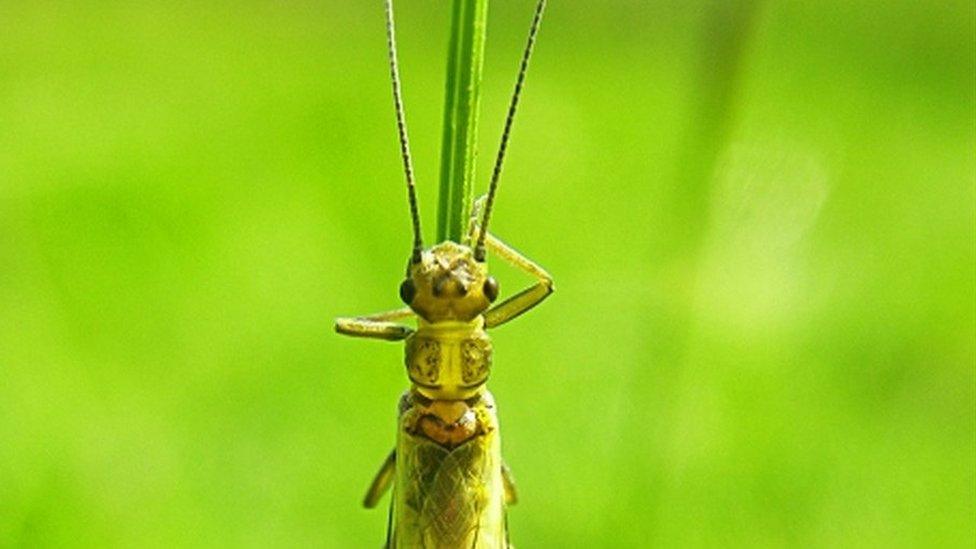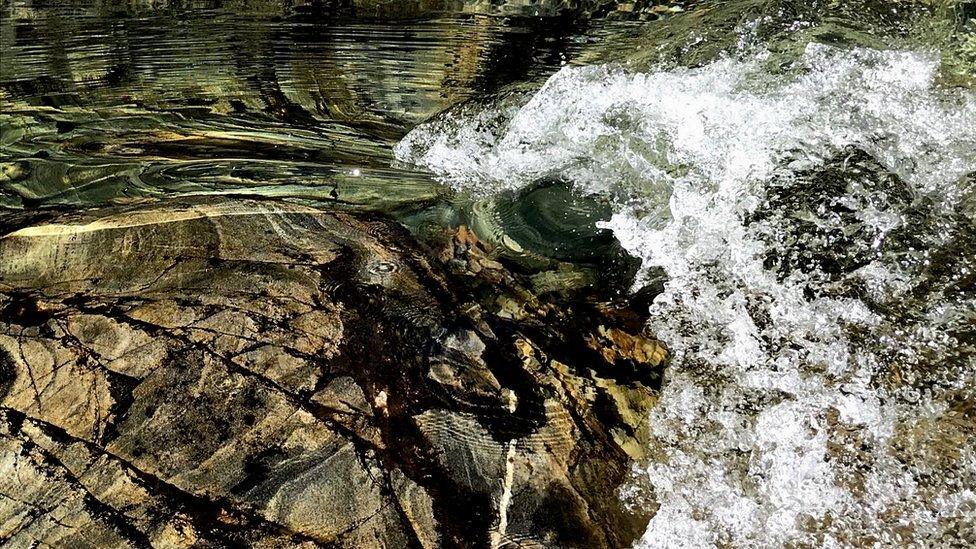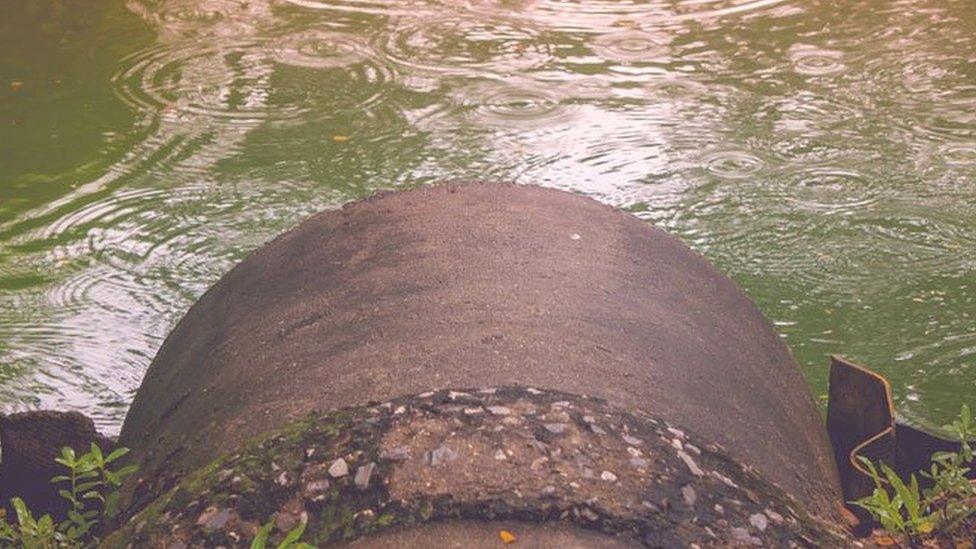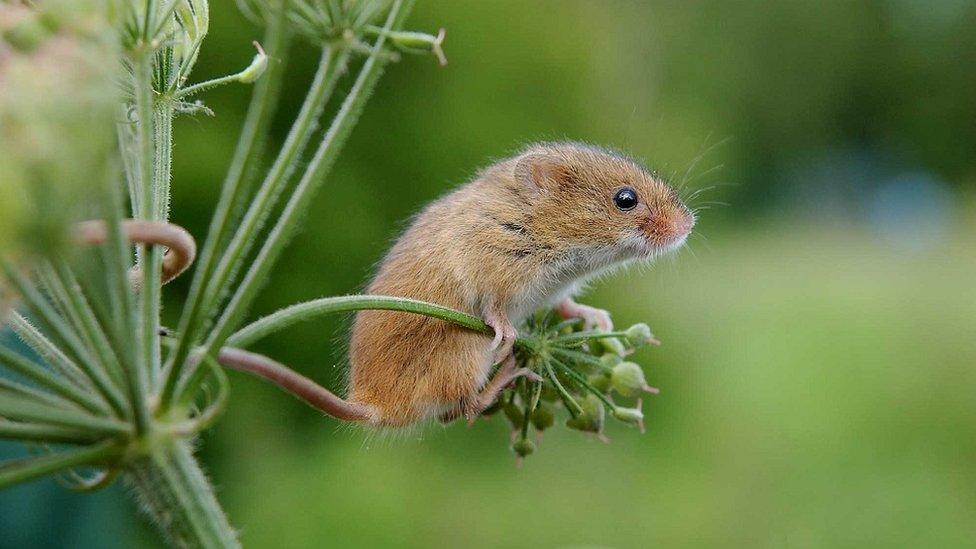Chester Zoo says Welsh Water sewage discharge puts wildlife at risk
- Published

The River Dee hosts threatened species such as the Yellow Stonefly
A zoo has complained that an "unacceptable discharge of sewage" by a water company released into a local river puts wildlife at "huge risk".
Chester Zoo has written an open letter, external to Welsh Water after the sewage entered the River Dee.
Chief executive Jamie Christon said the zoo was reliant on a "healthy, clean environment" along the river.
Welsh Water said the sewage was released as part of a flood prevention system.
It said it was aware of the zoo's letter and had reached out to request a meeting.
Mr Christon wrote the River Dee has an international importance for its biodiversity and the discharge was only two miles (3.2km) upstream from the Dee Estuary Special Protection Area.
He said the estuary was an important area for rare and declining birds as well as as threatened habitats including saltmarshes, mudflats and Atlantic salt meadows.
He added the river "hosts important populations of wildlife including declining invertebrates like the scarce Yellow Stonefly".

Chester Zoo is calling for a halt to the discharges
Mr Christon said: "Whilst we can provide help via our expertise in husbandry and conservation at the zoo site, we are ultimately reliant on there being a healthy and clean environment along the river.
"Sewage discharge at any point along the river presents a significant threat to these species and to those higher up the food chain such as fish and otters," he added.
During heavy rainfall the capacity of sewage pipes can be swamped, which could flood sewage works and potentially flood peoples' homes, roads and open spaces with raw sewage unless it is allowed to spill elsewhere.
Water companies have developed combined sewer overflows (CSOs) to release diluted sewage via overflows into rivers in a process the Environment Agency called a "necessary part of the existing sewerage system."
A Welsh Water spokesman said: "CSOs play a vital role in preventing homes being flooded following rain and storms because most of our network is a combined system that collects surface as well as wastewater.
"The operation of our CSOs - which mainly release surface water that enters our sewers due to rainfall - is highly regulated by our regulators.
"We are committed to providing information on the operation of our CSOs and publish this information on our website."

Why not follow BBC North West on Facebook, external, Twitter, external and Instagram, external? You can also send story ideas to northwest.newsonline@bbc.co.uk, external
Related topics
- Published23 August 2022

- Published2 August 2022

- Published28 July 2021
